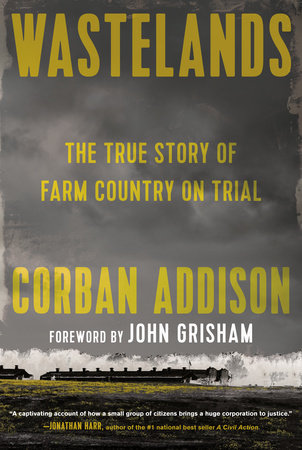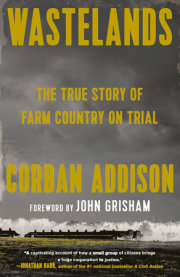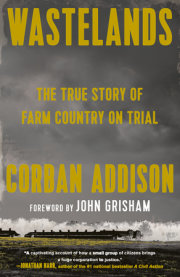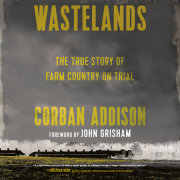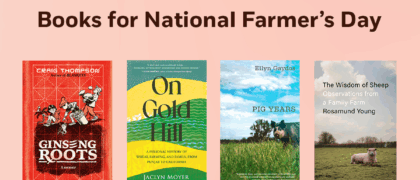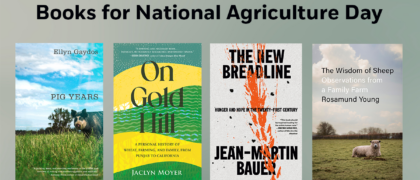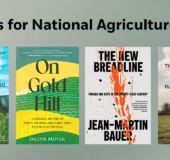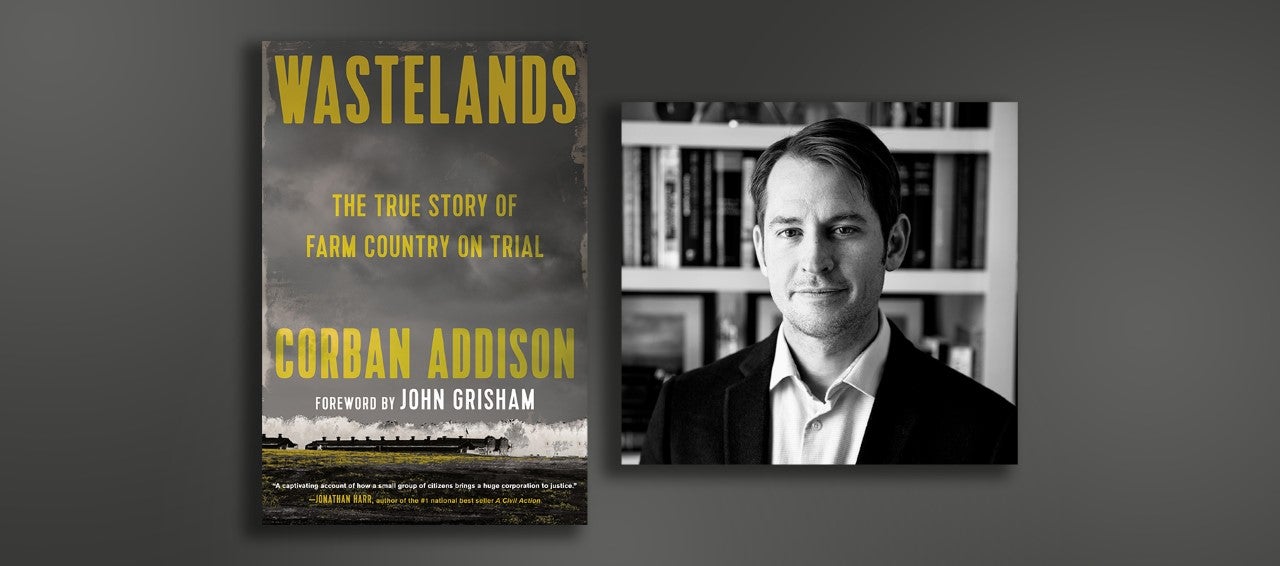Chapter 1
Homeplace
What is money when I have all the earth?
—George Washington Carver
River Road, Wallace, North Carolina Summer 1958
On a five-acre plot of sandy loam soil at the hem of a stand of pines lies a house built by hand a few years after the armistice that ended the First World War. The house is painted white, like a bridal veil, though in time the lady of the house, Beulah Stallings Herring, will paint it green and then pink, unlike any in the vicinity—perhaps in all of Duplin County. Not the flamboyant pink of lipstick or roses, nor the translucent pink of skin, but the spring pink of a dogwood flower.
It is a modest dwelling, yet it was constructed to weather the years. Its siding is German Dutch and its bones are likely pine, though precise memory of the framing will soon perish with the builders. The focal point of the house is the porch. It encompasses the structure’s entire front face, including the door. To the visitor it signals a welcome, an invitation to sit and stay awhile, to breathe the sweet country air and trace the shape of the clouds.
Though it is solitary, the house is almost never alone. It is the birthplace of fifteen children, all born to Beulah Herring across a quarter of a century. Her first child was old enough to vote by the time the baby, Elsie, came along. Elsie is ten years old now, and though she is the youngest, she is a precocious child, strong-willed and opinionated. One Sunday afternoon in July, she walks through the kitchen, the living room, and out the front door of the house as if she knows that one day it will be her own.
“Come on, Beef, let’s go,” she says, taking the hand of her brother Jesse and tugging him through the knot of adults sitting on the porch, enjoying the shade and the breeze.
Her father is in one of the rocking chairs, as is her Uncle Perl, and a neighbor from down the road. They are talking about the tobacco market and the harvest yet to come. They pay Elsie no mind. The afternoon meal is still a ways off, and they trust her to bring Jesse back in time.
Down the steps and out into the yard Elsie strolls, Jesse at her heels. While Jesse is older than Elsie by two years, he is smaller than most twelve-year-olds, his growth attenuated by Down syndrome. On account of their birth order and Jesse’s special needs, they have been close for as long as Elsie can remember. To her, he’s “Beef,” and to him, she’s “Elt.” Only one person in the world inspires greater affection in Jesse than Elsie does—their mama.
At this moment, Beulah is straightening clothes on the line. Even at the age of fifty-six, she is still a remarkably youthful woman, her gentle demeanor balanced by penetrating wisdom and unflappable resolve. She is Elsie’s favorite person, too. It is Beulah’s spirit more than any other that gives shape to their family. Her smile means Elsie is home.
“Where y’all headed?” she asks, as if already knowing the answer.
“Just going for a walk,” Elsie replies with a grin.
A couple of Elsie’s siblings are lounging on chairs in the yard beneath a sprawling tree whose canopy is wide enough to swallow the Carolina sun. Elsie catches the eye of her sixteen-year-old sister, Thelma, and tosses her a languid wave. Thelma’s twin brother, Delma, is beside her, sipping Coca-Cola and chatting with a friend. After Thelma waves back, Elsie leads Jesse around to the side of the house and back toward the smokehouse and the gardens beyond it.
The land opens up before her in the hues of emerald and henna, as does the sky in celestial blue. It is her mother’s land, all eighty acres of it, just as it was her granddaddy’s until he passed on to his reward shortly before Beulah gave birth to her first baby. Elsie knows her granddaddy, Immanuel, through the stories her mother has told her. Those stories are Elsie’s inheritance, too, and Jesse’s and Thelma and Delma’s. Like the land itself, they are a memorial to their family’s place in the world.
Immanuel Stallings was born into slavery, though his father was always free. Marshall Stallings was not a Black man; he was white, a landowner of modest prominence in Duplin County. Immanuel had no memory of his real mother. When he was old enough to inquire of her, he heard that she had died. In his later years, however, he came to believe something darker—that she had been sold by the Stallings family sometime before the Civil War upended the antebellum order and brought emancipation to the enslaved.
By virtue of the genetic lottery, Immanuel was pale enough to stand on the white side of the color line, but the laws of Jim Crow forbade him to claim any sort of standing. While Lincoln might have declared him free, his white neighbors would never consider him their equal. He was Black because his mother was Black. Such were the arbitrary diktats of apartheid.
He grew up in the care of his father’s sister, Emily Stallings Teachey. “Miss Emily,” as everyone in the family called her, was a kind and generous woman, who loved Immanuel like a son. It was Miss Emily who sold him the first fifteen-acre tract of land in 1891—the very land on which Beulah’s house now stands. And it was Miss Emily who, before she died six years later, sold him three more tracts of land, bringing his total acreage to eighty. She wanted to give him an anchor in the world, a piece of God’s dirt that no one could take away. She wanted that not only for Immanuel but for his children, and his children’s children.
For Beulah. For Elsie.
Elsie’s feet are bare and her eyes are bright as she skips across the long-bladed grass, her skin prickling with sweat. She hears the squeak of hogs in the family’s pen some distance away, and the sound of Jesse huffing behind her as they pass the peach and apple trees and the chicken coop, with its clucking hens. Her brother doesn’t need to ask where they are going, for on a Sunday afternoon in July, with the house too warm for comfort and all the chairs on the porch and in the yard occupied by their elders, there is only one place they would rather be.
The grape arbor.
There are two vines in the garden plot, striking both in their similarity and difference: One produces white grapes and the other black. There are patches of shade beneath the vines, offering relief from the heat. Jesse plops himself down, his upper body rocking slightly on the hinge of his hips, like a metronome in motion. Elsie, meanwhile, examines the fruit. Some of the clusters are still ripening, but others are plump with juice.
She selects a large bunch of black grapes and scampers back to Jesse, holding it out to him. Then she picks a cluster of white grapes and sits down beside him. Her brother is already chewing, murmuring with pleasure, his round face illumined as if by an internal lamp. She removes a grape from its stem and places it between her teeth, smiling instinctively at the sudden burst of flavor. She looks at Jesse and sees his own smile blossom, even as droplets of juice dribble down his chin. She giggles at him and wipes away the excess before it drips onto his clothes. Then she gives him a grape from her own stem, and he returns the favor. The black grape isn’t quite as sweet to Elsie’s tongue, but its flavor is more complex.
As soon as Elsie polishes off her last grape, she begins to hunt for more, prizing apart the leaves to find the hidden gems. After picking several bunches, enough to share with the family, she returns to her brother’s side. She lies back against the grass and stares at the diamonds of sky peeking through the leaves of the vine above her. She feels the humid caress of the breeze, hears the singsong chorus of the birds in the trees and Thelma’s laughter echoing across the yard. Her joy at this moment isn’t a thought or a feeling. It is a way of being. It is everything.
As a child, she has little consciousness of the hardships her family has faced. She has felt the roughness of her father’s hands, seen the lines worn deep into his forehead from long days of labor under the relentless sun. But she knows nothing of the stress of sharecropping tobacco, none of the travails of a Black farmer trying to make an honest living in a world built to keep the Black man down. She understands the structure of segregation from the water fountains and public toilets in Wallace and the way the schoolhouses separate white children from Black. She has experienced the sting of being snubbed by white friends when they see each other in town. But out here among the fruit trees and grapevines, on this fertile land that her granddaddy handed down to her mama and that, one day, her mama will hand down to her, all of that ugliness is just a faint shadow lurking behind an otherwise luminous world.
This is Beulah Herring’s land. And, like the Beulah Land in the hymn that Elsie has sung at church, it is a land of bounty and delight. If the world will do her wrong, it will happen someplace else. Here, there is shelter. There is plenty. There is family.
To ten-year-old Elsie, that is all that matters.
Hallsville Road, Beulaville, North Carolina
Summer 1958
On that same day, or a day much like it, on a rural plot of land fifteen miles northeast of Wallace, a boy about Elsie’s age named Woodell McGowan ventures out into the sun, his eyes fixed on the dark silhouette of forest to the north. His mother, Delores, calls out to him to be home by sundown, then returns to her Sunday chores. She is not the woman who brought him into the world, but she has raised him since the day, seven years ago now, that his birth mother died. As far as Woodell is concerned, Delores and her husband, George McGowan, are his parents. He remembers at the age of three waking up between them in their little house off Hallsville Road. The fact that they are not his blood means nothing to him. They are his family. And this is their land. Hall land. All one hundred acres of it.
The land goes back generations in Delores’s line. Woodell knows it like he knows his own home, every crease and fold of it, every patch of field and thicket—hardwood and pine—all the way back to Limestone Creek. The deeds at the courthouse in Kenansville contain a record of the boundaries, but lines drawn on paper mean as much to Woodell as they do to the squirrels and the jays and the crickets that watch over him on his adventures. There are surely places he has yet to see, treasures he has yet to discover, but whatever is out there will not keep its secrets long. He is determined to explore all of it, to map its furthest reaches in his mind, until he can find his way blindfolded. For then, in a way, the land will be his, too.
The big field comes first. Woodell scampers across it in the unhindered manner of youth, half walking, half running, heedless of the motions transporting him. His hands are free, and he is carrying nothing on his back. Where he’s going, he has all he needs. Past the field is the big house, where his mother, Delores, and her four siblings were raised. In the family, it’s called the “old homeplace.” Both of Dolores’s parents are gone now. Her father, John Richard Hall, died before Woodell was born, and her mother, Mary Jane Hall, passed more recently.
Like Elsie Herring’s grandfather, Immanuel Stallings, John Richard Hall was born in the waning days of the Old South, before the curtain closed on slavery. As the story goes, he was young enough that he sat at the foot of his father’s bed and didn’t have to work in the fields with the other slaves. Then came the war and emancipation and Reconstruction. As soon as he could manage it, John Richard Hall’s father—Delores’s grandfather—began acquiring the land that became the one hundred acres. Now that John Richard and Mary Jane are gone, Delores holds title to the land together with her oldest sister, Lillie Belle Hall, and her brother, Raymond.
Beyond the big house, the forest rises up, its branches touching the sky. Woodell races toward the line of shade, then slows when the afternoon sun retreats behind the crown of trees. He enters the woods at a leisurely pace, hopping roots in the speckled light, his feet falling softly on the carpet of leaves and pine needles. As usual, his destination is the creek. But first, he heads toward the camp. He sees the meadow before long, wild grass surrounded by pines, and the tent he fashioned with his own hands, burlap threads spread out over a latticework of branches. If any place in the world is Woodell McGowan’s, this is it.
He lies down in the shade of the tent. There is just enough room for him to stretch his legs, but that is all the space he needs. He listens to the calls of the birds and the whisper of the wind moving through the pine boughs. He watches the hawks pirouetting in the sky and the cloud sails floating high above them. While he is alone, he is not lonely. Indeed, he is never happier than when he is by himself in these woods, with nobody but God for company.
In time, he rises again and sets out for Limestone Creek, a quiet tributary of the Northeast Cape Fear River that meanders for miles in an arc around the town of Beulaville. There is a pool he frequents on days like this, when even shelter is not enough to break the heat. The pool is too shallow to swim in. But it is clear and cool on his skin and covered by deep shade, and once in a while he sees fish darting among the rocks.
At the pool, he takes off his shoes and steps into the gently flowing water. It splashes on his ankles and tickles him enough to make him laugh. He moves his feet deeper, until the water laps around his calves. It is a blissful feeling, but the rest of him is still coated in sweat. On impulse, he sits down in the water and reclines his body, immersing himself in the stream.
As the water washes over him, cleansing his pores and cooling his skin, he looks up through the branches at the same gem-cut sky that has captured Elsie Herring’s fancy fifteen miles away. He doesn’t think about the life pulsing through him or where the years ahead will take him. He wastes precious little thought on the future. But even if he pondered it like Aristotle, his mind could not conceive how time will change the land he loves—the forests turned into fields, and the fields converted into industrial farms; the hog barns laid out row upon row, thousands of pigs packed into them like sardines; the great pits hewn into mud and clay to store the waste of a small city; and that waste sprayed out into the air and onto the soil until the ground can hold no more of it, until a breath smells of effluent and the streams run with poison.
Ideas such as these are as foreign to young Woodell as the towers of New York City and the turrets of the Taj Mahal. Nor can Woodell imagine that his path, in the coming decades, will converge with Elsie’s and hundreds of other people like them, and that their collective memories of the land, and their passion for its dignity, will fuel a titanic battle for the soul of this place, and, more broadly, of eastern North Carolina.
Lying in the stream, Woodell is marvelously oblivious to all of this. Just as he should be. He is a boy in summer. His belly is full, and his heart is light. His family is close by.
He is home.
Copyright © 2022 by Corban Addison. All rights reserved. No part of this excerpt may be reproduced or reprinted without permission in writing from the publisher.

